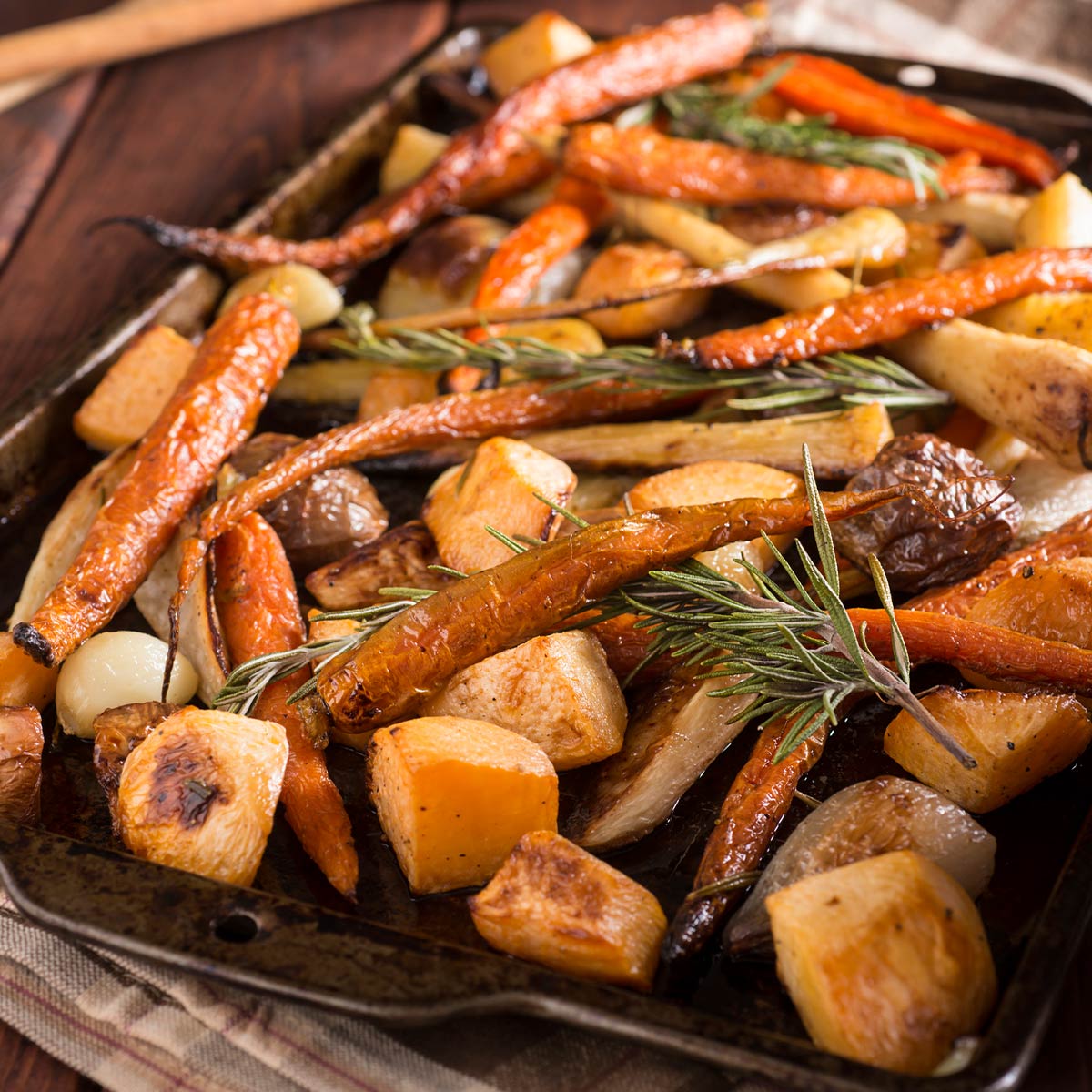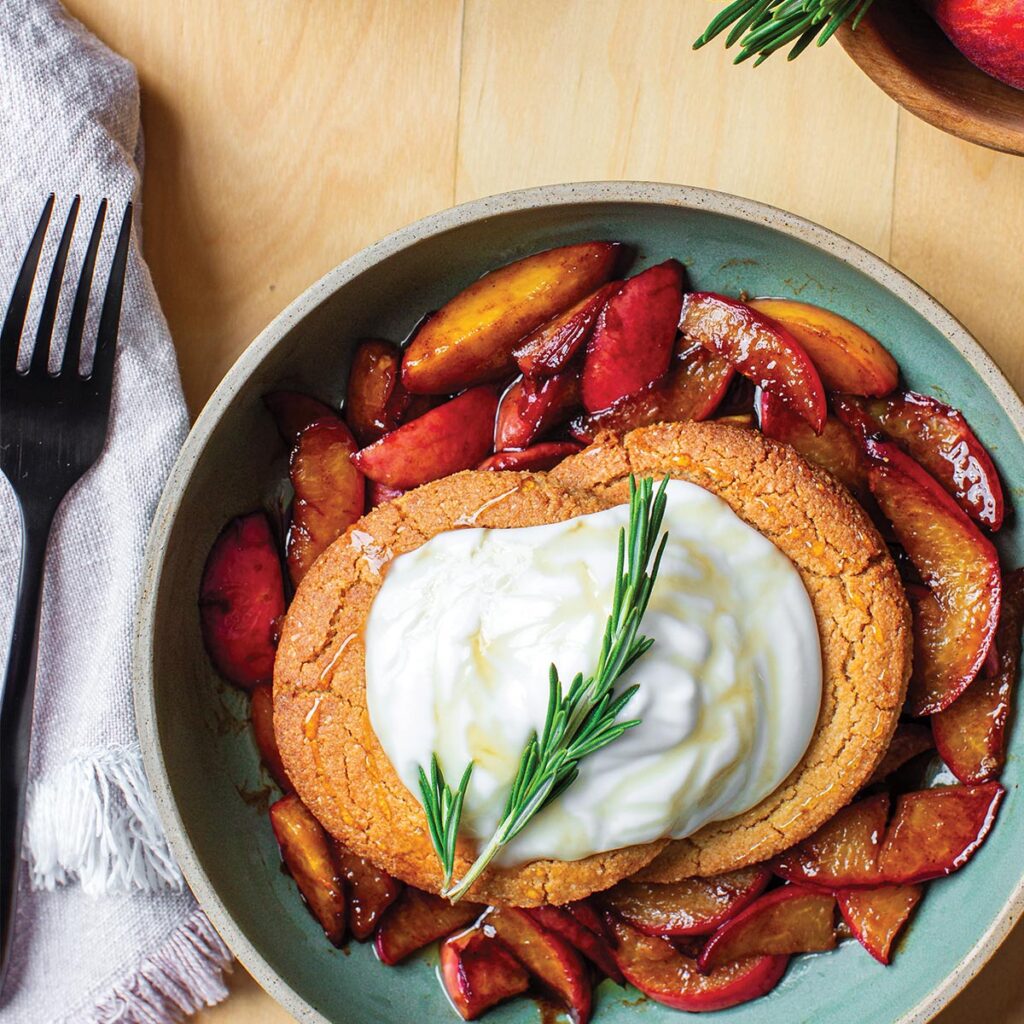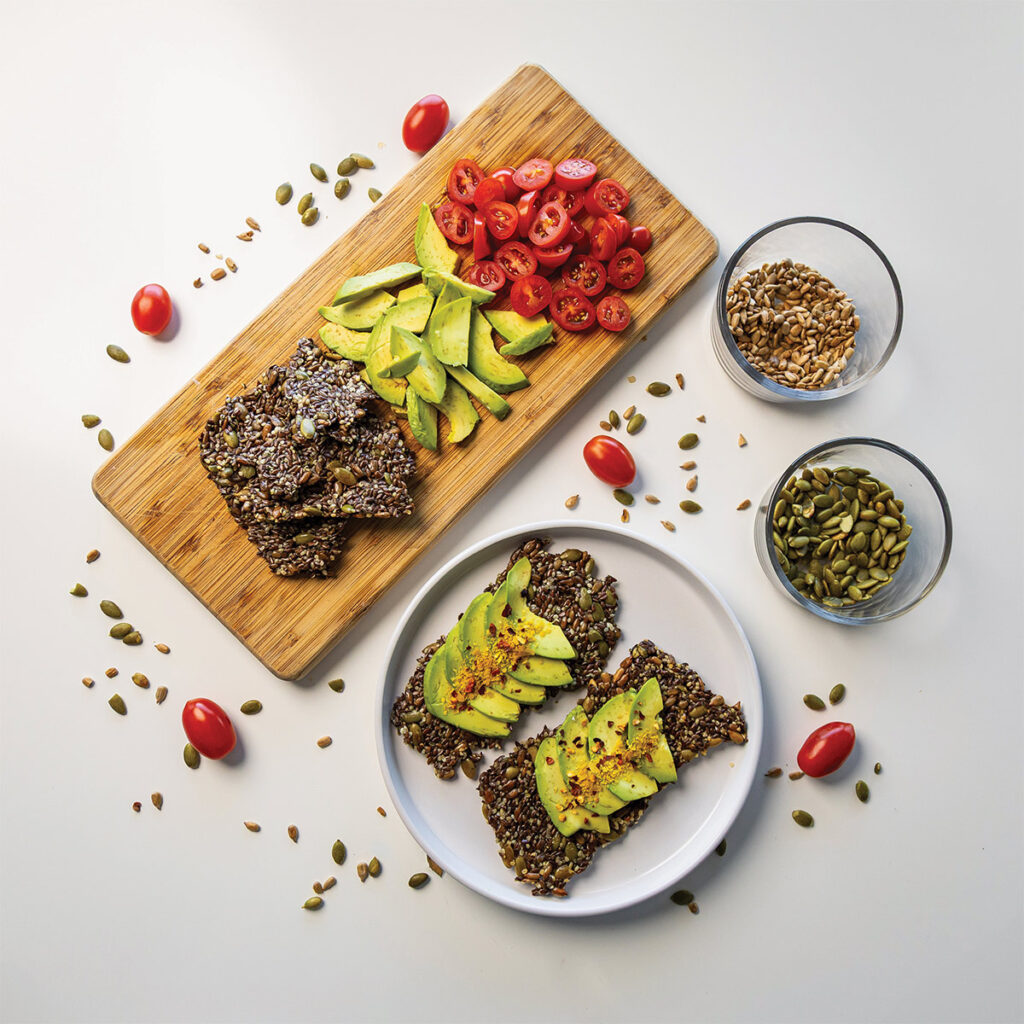Neighbor to the carrot, parsnips can be used in the same ways, but are even sweeter, especially after the first winter frosts or being cooked.
Parsnips are versatile root vegetables that can complement any dish. From stews to roasted veggie medleys, Parsnips are an underrated superstar.
Roasted Root Vegetables with Rosemary
9
servingsTry this side dish that incorporates a variety of rustic vegetables and is very easy to make.
Ingredients
- ½ pound
Parsnips, peeled, cut into 1-inch pieces
- ½ pound
beets, peeled, cut into 1-inch pieces
- ½ pound
celery root, peeled, cut into 1-inch pieces
- ½ pound
turnips peeled, cut into 1-inch pieces
- ½ pound
carrots, peeled, cut into 1-inch pieces
- 2
red onions, cut into 1-inch pieces
- 2
leeks (white and pale green parts only) halved and cut into 4-inch-lengths
- 2 Tbsp.
chopped fresh rosemary
- ½ cup
olive oil
- 6
garlic cloves, peeled
salt and pepper, to taste
Directions
Preheat oven to 400°F. Position 1 rack in bottom third of oven and 1 rack in center of oven.
Combine all ingredients except garlic in large bowl; toss to coat. Season generously with salt and pepper. Divide vegetable mixture between 2 baking sheets. Place 1 pan on each oven rack. Roast 30 minutes, stirring occasionally. Reverse positions of baking sheets. Add 3 garlic cloves to each baking sheet.
Roast 45 minutes longer or until all vegetables are tender and brown in spots; stir vegetables occasionally.
Transfer roasted vegetables to large bowl and serve.
Facts about Parsnips
Did You Know? (1)
Parsnips are native to Europe and Asia and are an excellent source of your daily fiber needs, providing as much as 13% of your daily fiber.
Did You Know? (2)
The reason parsnips can be used for rich, sweet recipes is because their starch actually turns to sugar after the first frost, while still in the ground. That’s why winter parsnips are sweeter than parsnips from warmer months.
Storing Wisdom:
It’s a good practice to wash any produce as soon as you get it home. To maintain maximum freshness, store parsnips in a tightly sealed plastic bag in the refrigerator.
How to Choose:
Look for parsnips that are firm and feel dense for their size. They should have roots intact. Remember the whiter the flesh, the sweeter the taste. Keep in mind you don’t want shriveled or yellowing skin on the outside, and bigger is not necessarily better. When prepping, peel the parsnip and cut out any woody core.





